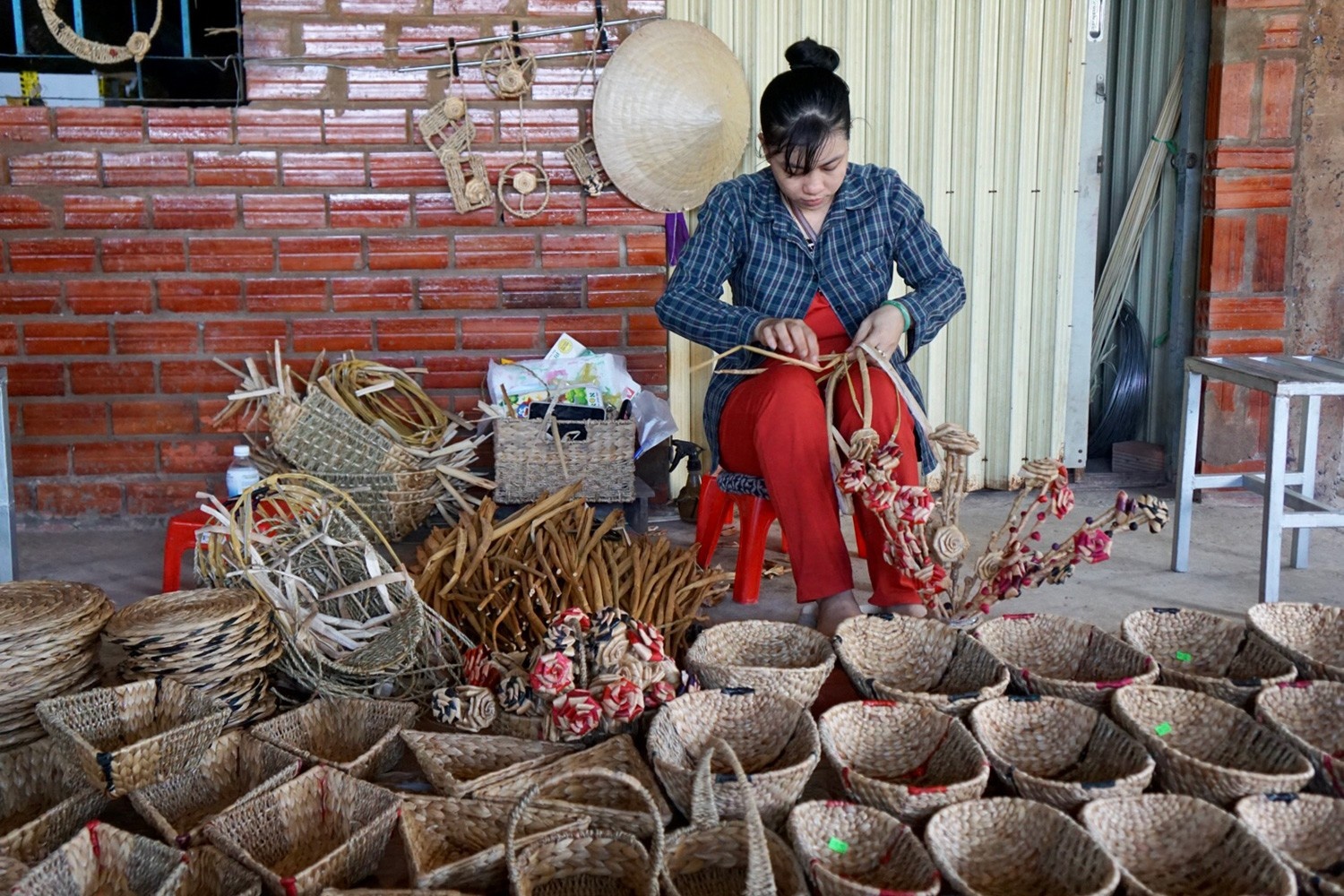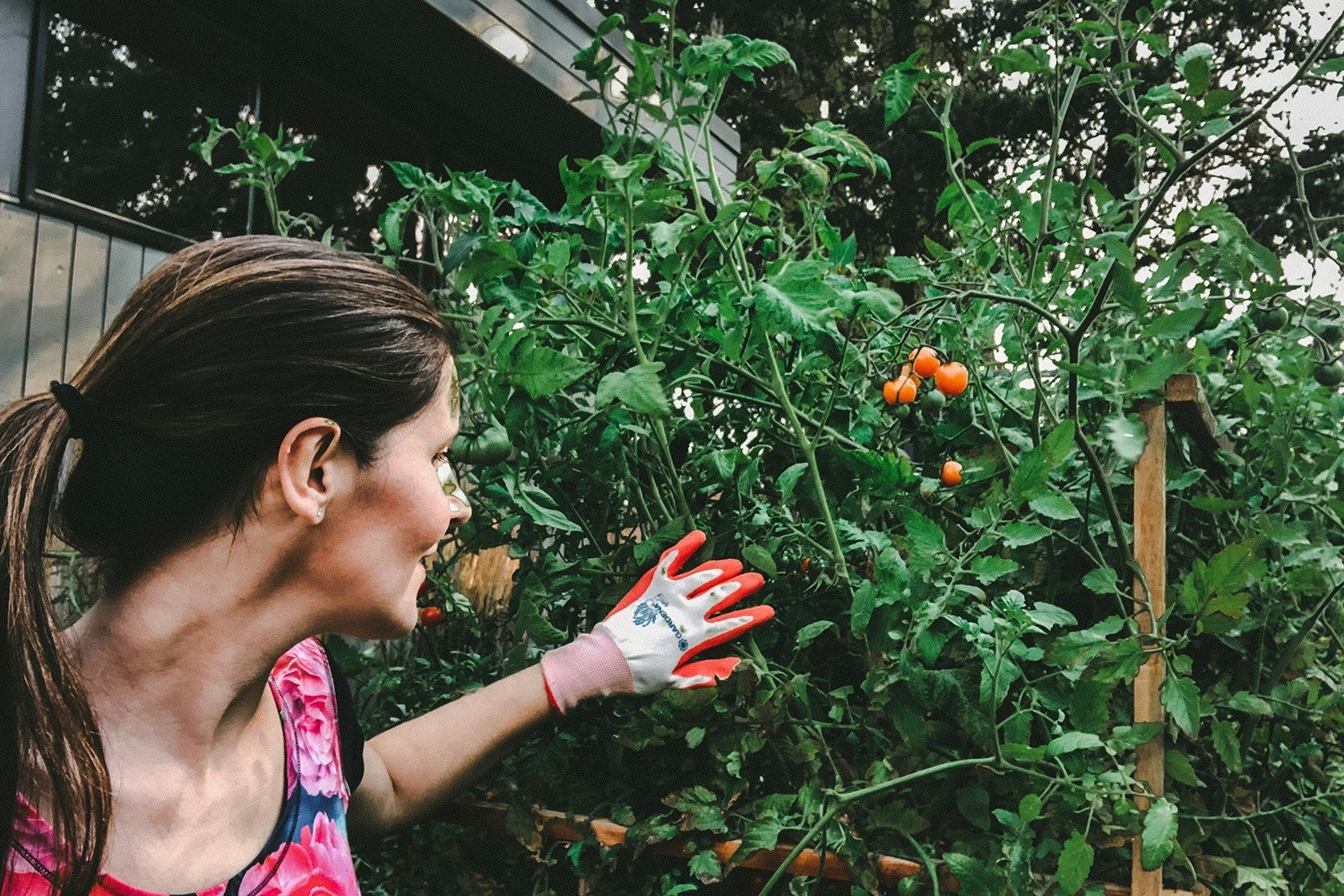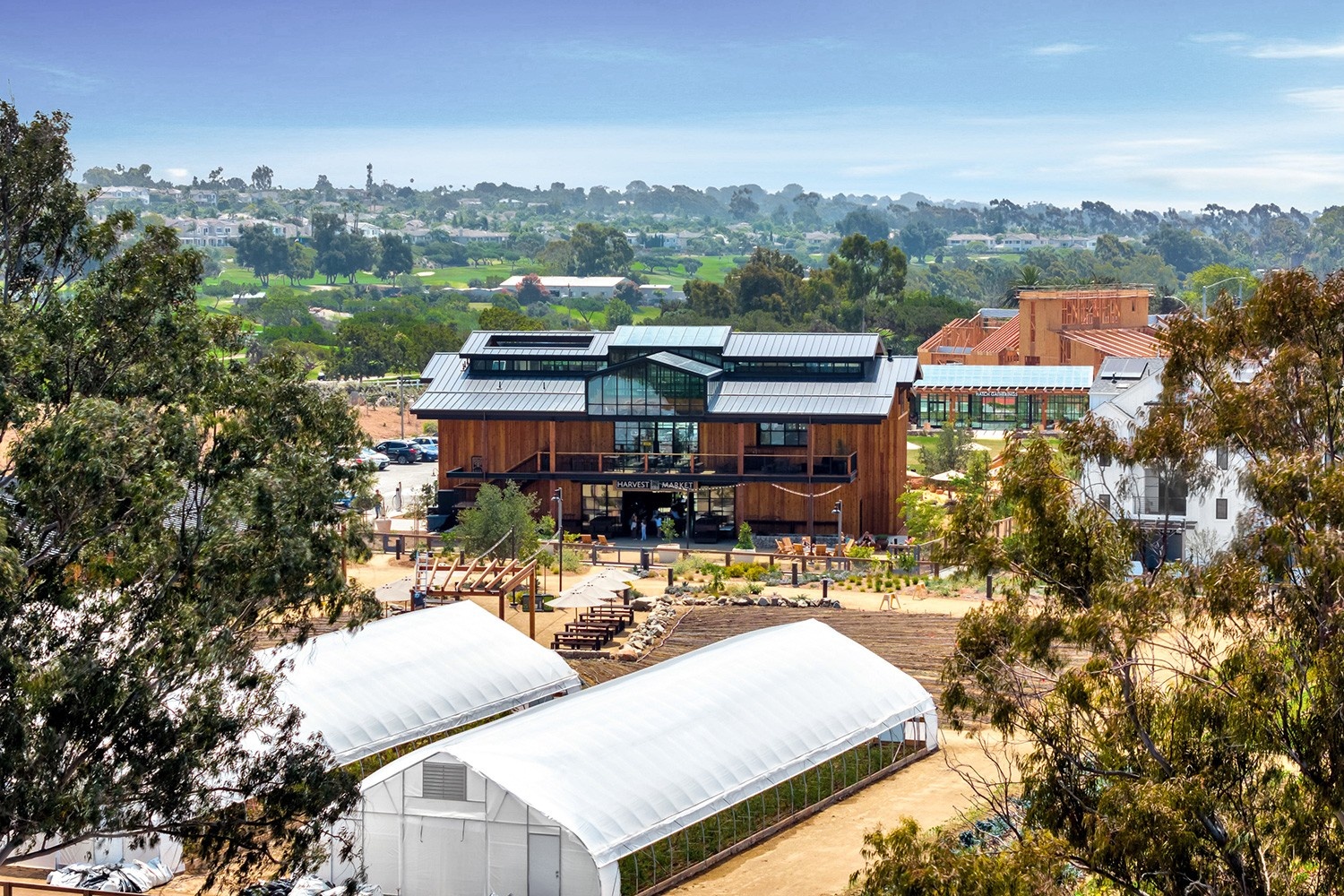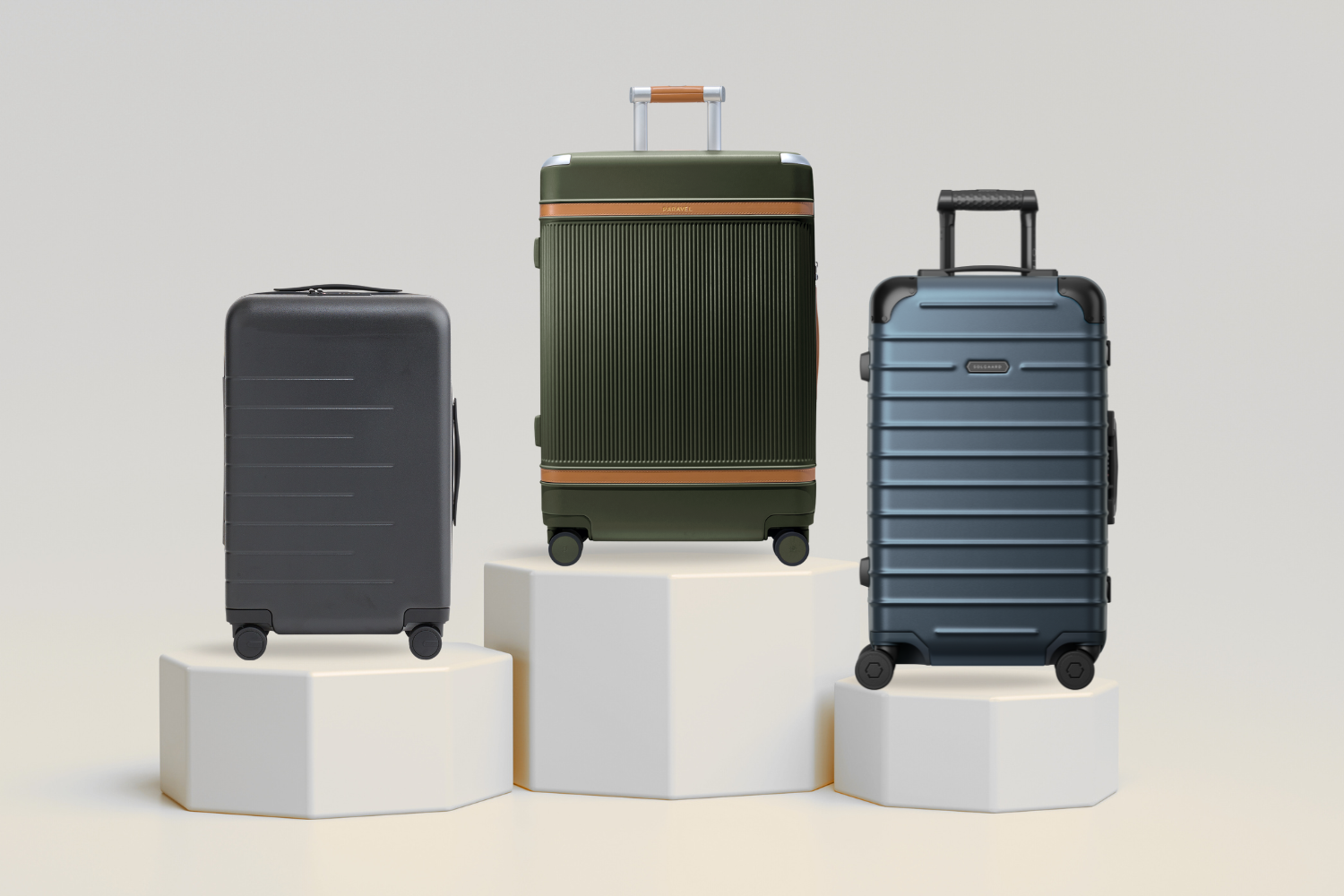“If you live in a city with a refillable store, start your journey there by chatting with the owners and buying local.”
The journey of a thousand miles begins with a single step.
Unfortunately, the journey our plastic waste takes does not flow as directly into the recycling plant as we thought. If at all. In fact, scientists estimate that only 9% of all plastic waste generated globally, ends up recycled. (The United Nations published a great explainer on why more plastics aren’t being recycled.)
In light of this news, I challenged myself during the pandemic to find sustainable alternatives to common household products, aiming to reduce my reliance on plastic and, by extension, the use of chemical-laden formulas that often accompany it. While eliminating plastic entirely from modern life remains challenging, I’ve made consistent progress. While living in the Catskills, my journey began with a visit to a local refill store in Woodstock, NY in 2020. Now that I’m in Charleston, I’m excited to continue on the path with the help of zero-waste shop Wake Refill. Located on the peninsula, I recently refilled my glass hand soap pump at the newly opened shop.
If you live in a city with a refillable store, start your journey there by chatting with the owners and buying local. It not only reduces your carbon and packaging footprint, but it supports the small businesses bold enough to open a brick-and-mortar in this niche. Check out Plastic Free Future to find a refill shop near you. The site isn’t comprehensive but it may reveal a surprise retailer you didn’t know existed.
The rest of the suggestions below feature products you can order online. Here are ten of my go-to swaps for common household products. If you’re a fan of other brands, send us a line and let us know about them.
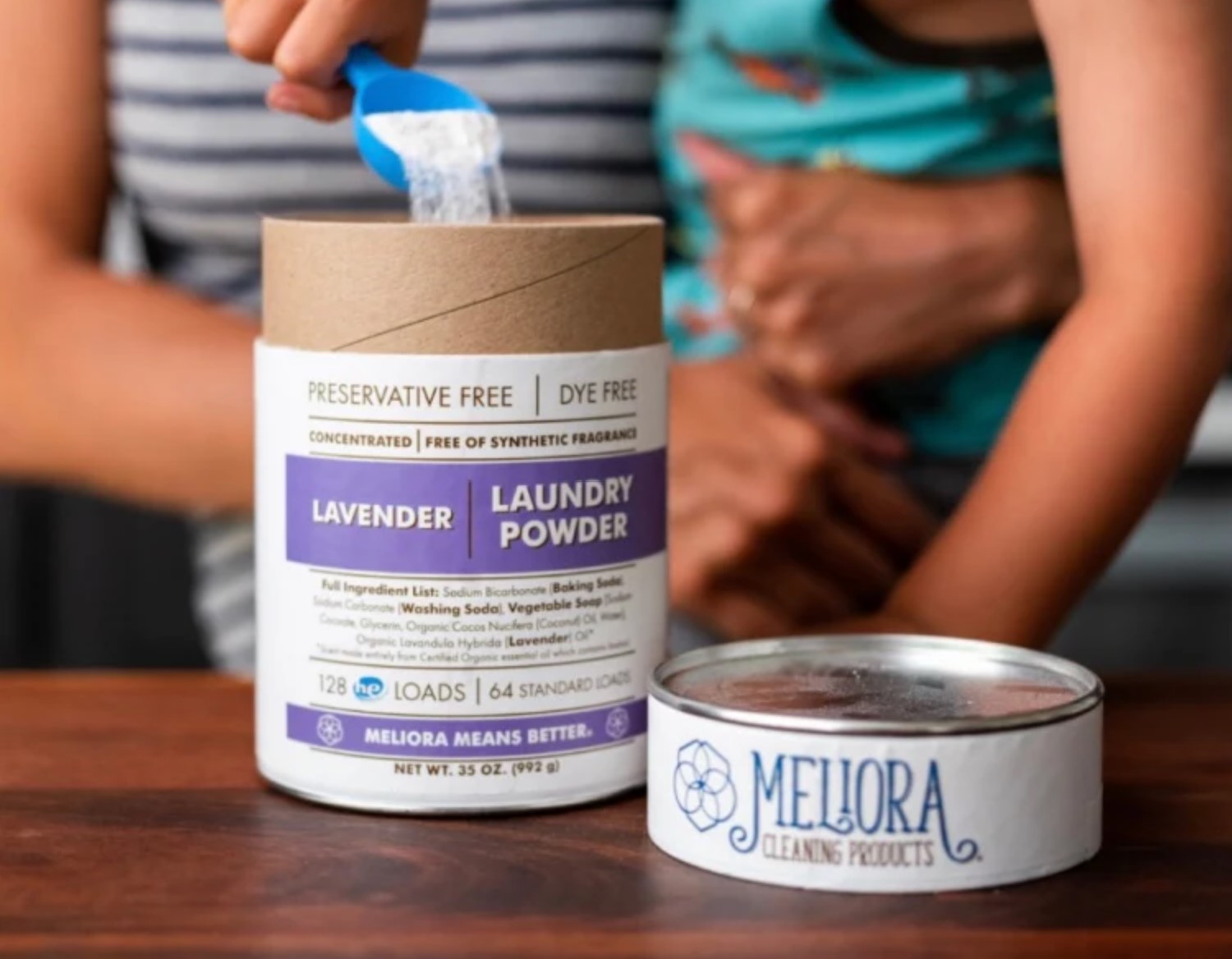
Courtesy of Meliora.
Laundry Detergent
The big plastic jugs that have defined the packaging of the detergent industry remain an environmental scourge. Single-use detergent pods, at first glance, appear less harmful, but the detergent is contained in polyvinyl alcohol (PVA), a petroleum-based polymer some argue harmful to the environment by breaking down into microplastic-like particles. As an alternative, I like the concentrated lavender powder from Meliora, which ships in a recyclable tin and compostable paper. (You can often find this brand in refill shops if you have one locally.) While studying for her masters in environmental engineering, founder Kate Jacobas started researching the ingredients found in everyday household cleaning products. She didn’t like what she uncovered, so she started Meliora. All products from this B-Corp certified company are made in Chicago. If you like the detergent and commit to the canister, Meliora sells refill powder in recyclable paper and cardboard packaging.
Dryer Sheets
Traditional dryer sheets come covered in oily chemicals and for many, myself included, transfer a nauseating fake fragrance to clothes, bedsheets, and towels. In 2022, The Environmental Working Group published this article encouraging readers to skip dryer sheets, noting that “heat-activated dryer sheets can pack a powerful combination of chemicals that can harm your health, damage the environment and pollute the air, inside and outside your home.” Fortunately, there are several good options for speeding up drying and reducing wrinkles. I discovered wool dryer balls four years ago and haven’t looked back. They’re less noisy than the tennis ball hack you’ve seen on TikTok and don’t contain plastic like other category competitors. I like the Dropps XL set made from chemical-free New Zealand wool. It comes in different colors for light or dark loads. The company is B-Corp certified, and offers carbon neutral shipping.
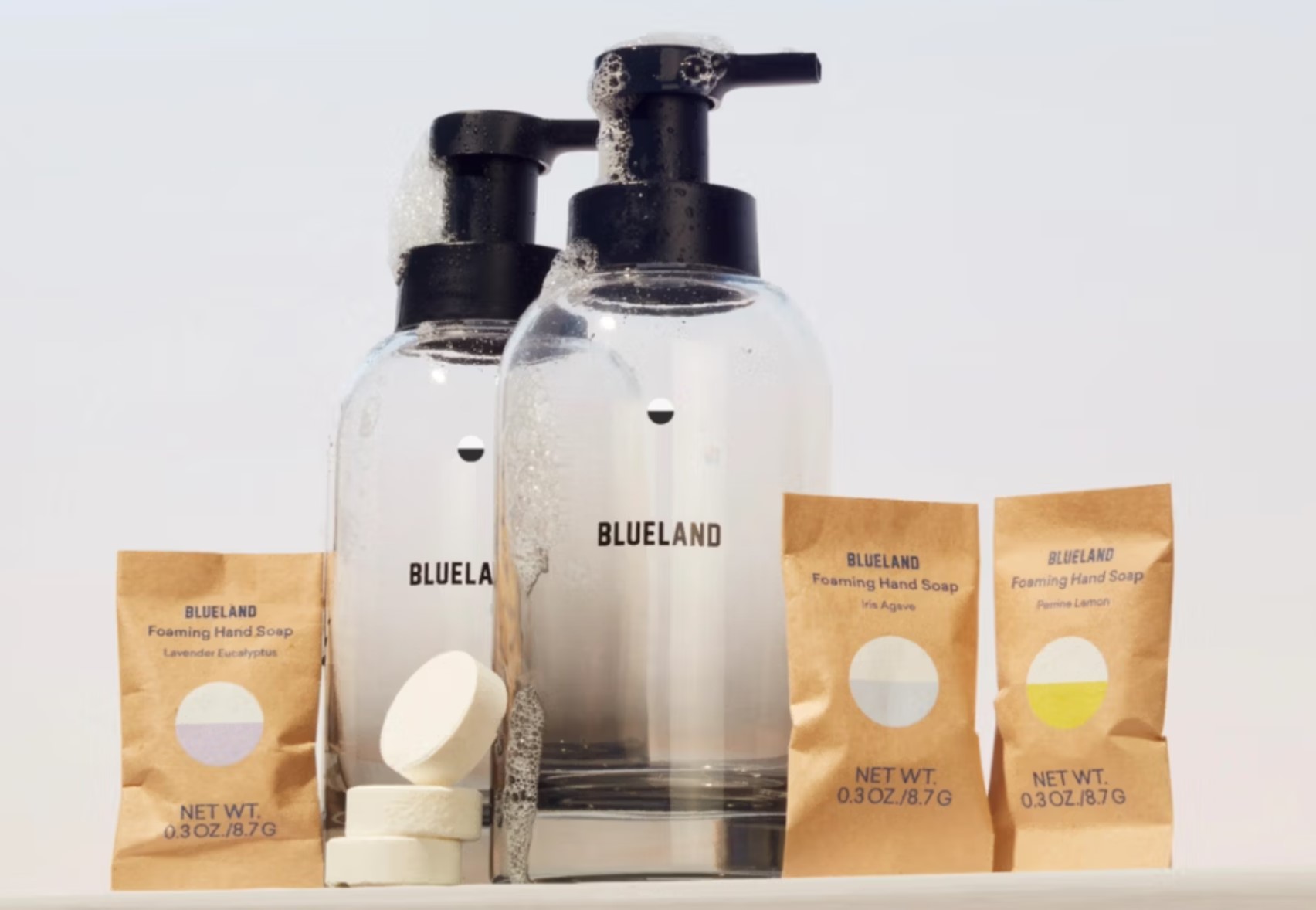
Courtesy of Blueland.
Hand Soap
It’s always been easy to pick up a new bottle of hand soap when shopping at your grocery or big box retailer, but recycling those bottles? Less so. Depending on your local municipality’s recycling rules, they may accept the bottle but not the pump, if they accept and actually recycle either at all. In light of this, I started researching glass refill bottles and landed on Blueland. The B-Corp certified, Climate Neutral company sells a glass pump starter set with plant-based cleaning tablets that turn into foaming soap when dissolved in water. I use this at home and love it for all the bathrooms as well as in the kitchen for cleansing greasy hands.
Dishwasher Detergent
Just like laundry detergent, I’d grown sick of buying endless plastic containers of dishwasher detergent. They can leak, take up precious cabinet space, are challenging to recycle, and the detergent itself is typically a toxic chemical mix that can include fragrance, phthalates, and surfactants like Nonylphenol Ethoxylates (NPEs), which have been banned in other countries, but not the U.S. Even the pods, like laundry detergent, pose threats from the ingredients as well as the microplastics released through their dissolution in water. After significant research and trial-and-error, I pivoted to super concentrated dish powders like this one from Etee. It comes in a paper packet biodegradable tekpak and you only need one teaspoon per load.
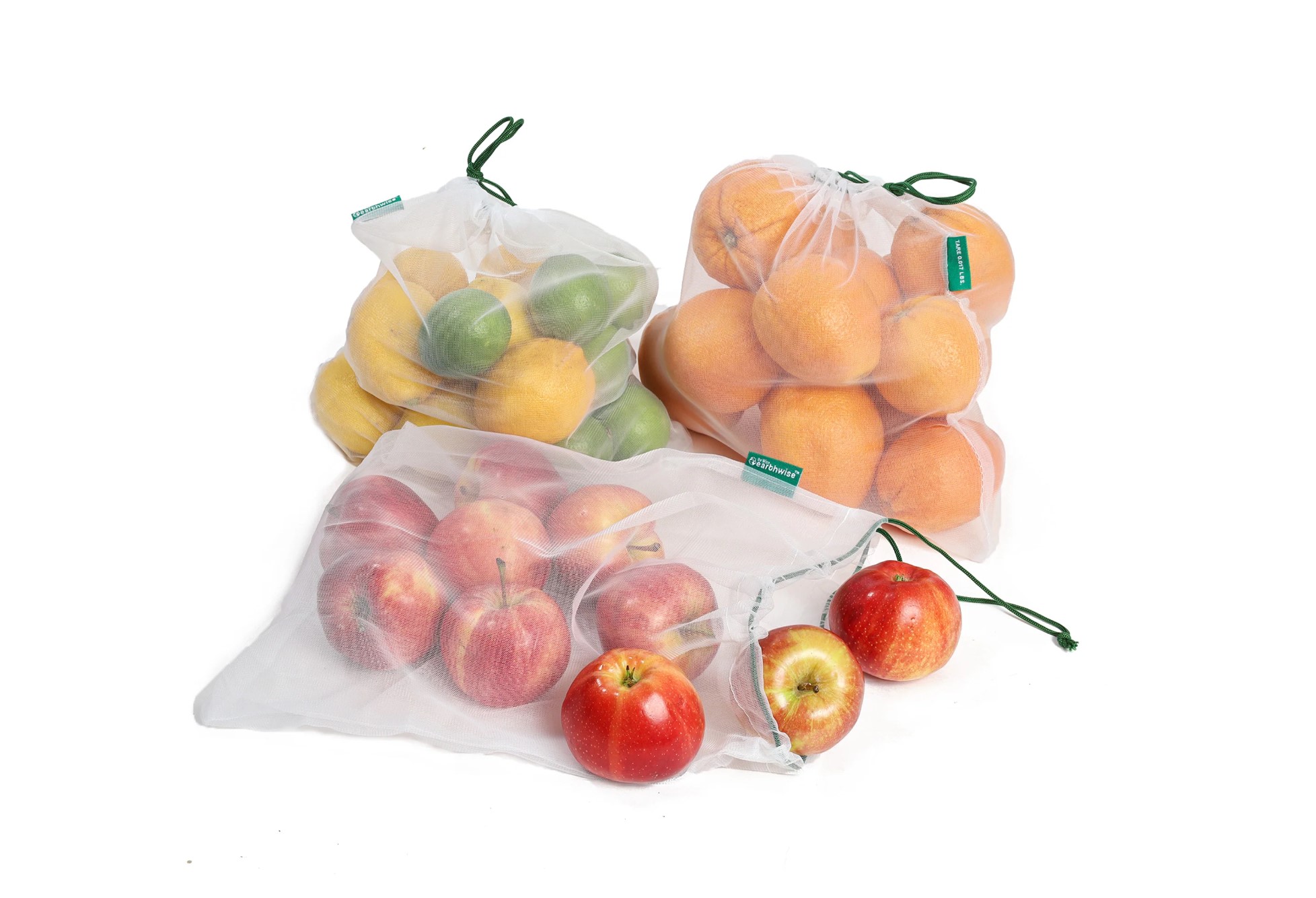
Courtesy of Earthwise.
Produce Bags
You might bring your own shopping bags to the grocery, now that many states have started taxing or removing single use plastic altogether. But like many of us, you probably still grab a produce bag or six. The reality is, if you wash your fruits and vegetables, you don’t need to put it in a sack to get it from point A to point B. However, the habit around maintaining food sanitation is so ingrained in us, it can be hard to break. So keep a few reusable produce bags with your grocery totes instead. There are a few ways to go here: organic cotton bags or nylon mesh bags are the main options. I have both, but prefer nylon for its transparency and lightweight washable performance. I currently have a set in different sizes from Earthwise. They’re a wholesale company but you can buy them off Amazon; to avoid the footprint of shipping, however, nab them at Whole Foods instead.
Freezer & Food Bags
Still addicted to Ziploc? Still trying to wash a used bag then dry it inside out on the kitchen counter? I was, too, until discovering Stasher Reusable Bags. Made from silicone, they’re super easy to seal, wash in the dishwasher, and reuse. While they’re an up-front investment, I’ve had mine for four years and they remain in great shape. Now the only place I’m forced to use a throwaway baggie is at the airport thanks to security concerns around liquids. If you’re cost-conscious (who isn’t these days), Stasher is running a big sale right now. I recommend ordering a starter kit or 3-pack before the pile-up of leftovers hits your holiday table.
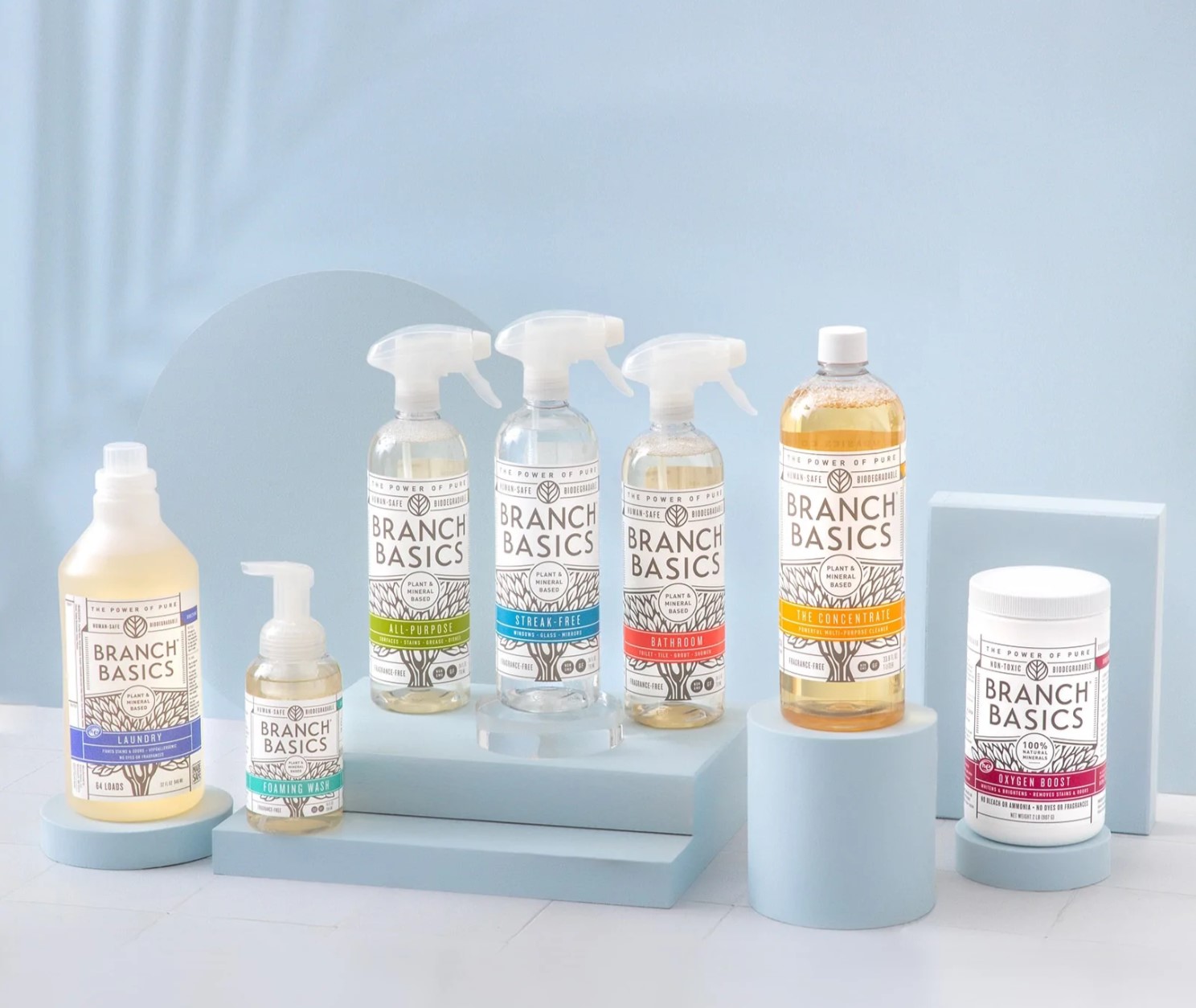
Courtesy of Branch Basics.
Cleaning Sprays
From 409 to Windex, American households have been buying chemical-driven branded cleaners in plastic spray bottles for decades. As more of us seek to reduce the toxic fumes in our homes along with our plastic footprint, companies are stepping up to fill the niche. There are quite a few that offer multipurpose products with refillable bottles for kitchen, glass, and bathroom care. Branch Basics offers a cleaning essentials kit that comes with BPA-free plastic reusable bottles and a multi-purpose cleaning solution concentrate that you dilute in water. However, if you want to avoid plastic bottles – and ideally, we do – go for the glass refillable starter kit. The concentrated cleaner is plant-based.
Plastic Wrap
Training oneself not to reach for the smooth pliable solution of plastic wrap is hard. However, once you get the hang of caring for and cleaning beeswax wraps, you’ll find it’s a fairly easy and elegant solution to its single-use counterpart. I like the brand Bee’s Wrap. It comes in various sizes and keeping it clean is as simple as hand-washing in cool water with mild dish soap then air drying.
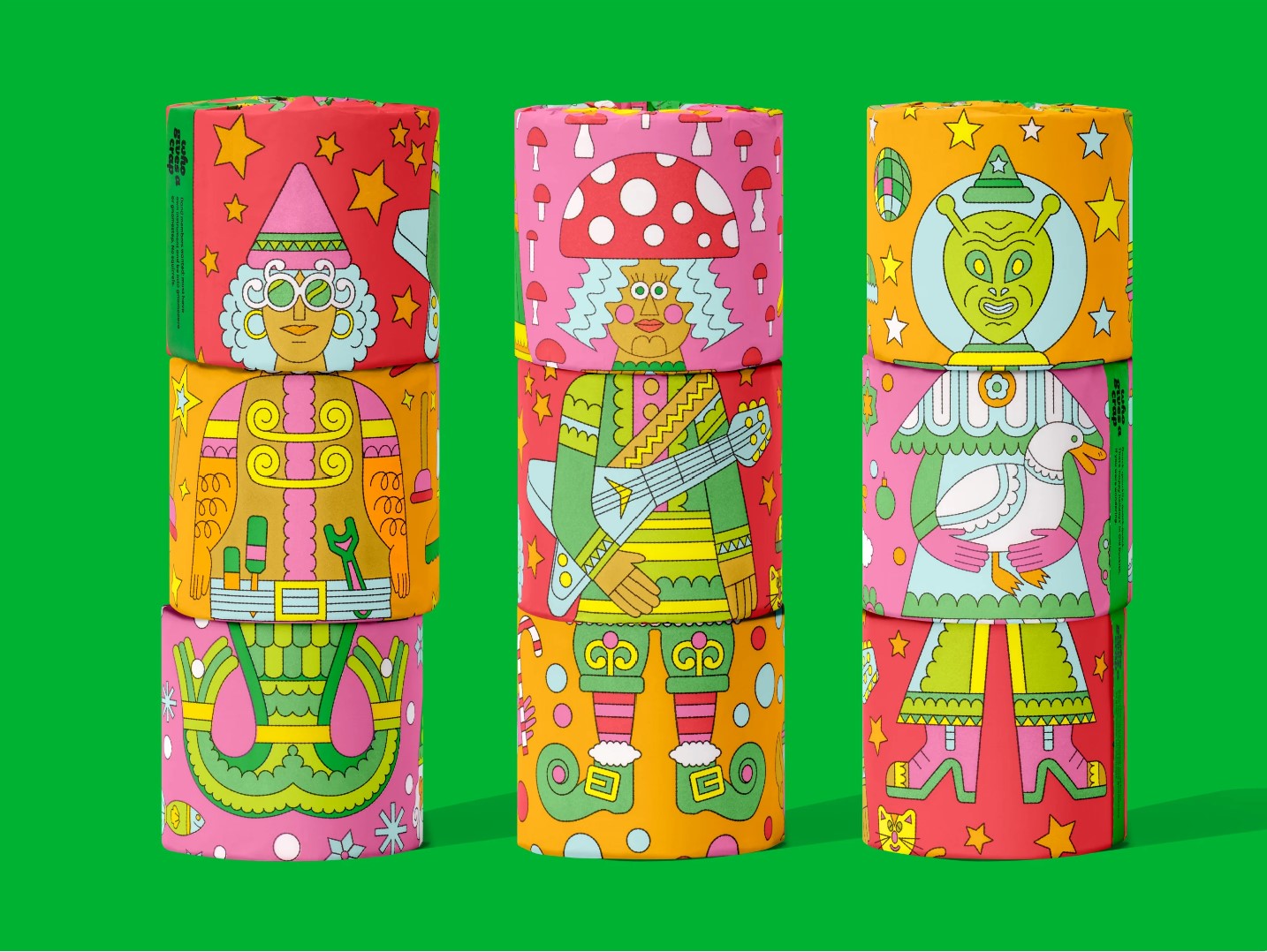
Courtesy of Who Gives a Crap.
Toilet Paper
Given the American predilection for wiping with paper instead of adopting the water-based cleaning system of the bidet, one can imagine how many trees we go through. Add the chemicals and fragrance toilet paper companies treat their products with – chlorine, formaldehyde, and BFAs, to name a few – plus the plastic packaging it comes in, and the footprint grows even bigger. Since the pandemic, I have been buying in bulk from the Australian company Who Gives a Crap. They make paper from bamboo, a fast-growing renewable resource. The rolls come individually wrapped in pretty paper, meaning you can display them rather than hide them in a closet (if you’re desperate for bathroom decor.) The company is B-Corp certified and donates 50% of its profits to help build toilets and improve sanitation in the developing world.
Toilet Bowl Cleaner
In a bid to stop buying conventional supermarket toilet bowl cleaners, I tried a few products including EC30Clean which makes powder pouches that you drop into the water, let foam, then scrub. The main caveat is that the powder comes encapsulated in PVA, a petroleum-based polymer that some argue doesn’t biodegrade as neatly as its manufacturers claim. I’ve also tried cleansing strips by Lazy Coconuts. They’re septic and gray water safe, scented with essential oils, as well as free of phosphates, plastics, dye, bleach, parabens, and phthalates-free. The strips come in a thin, space saving sleeve made from FSC-certified cardboard. The ingredients also list PVA, so you’re not avoiding that possible issue, but the strips work well if you regularly maintain your toilet’s cleanliness.
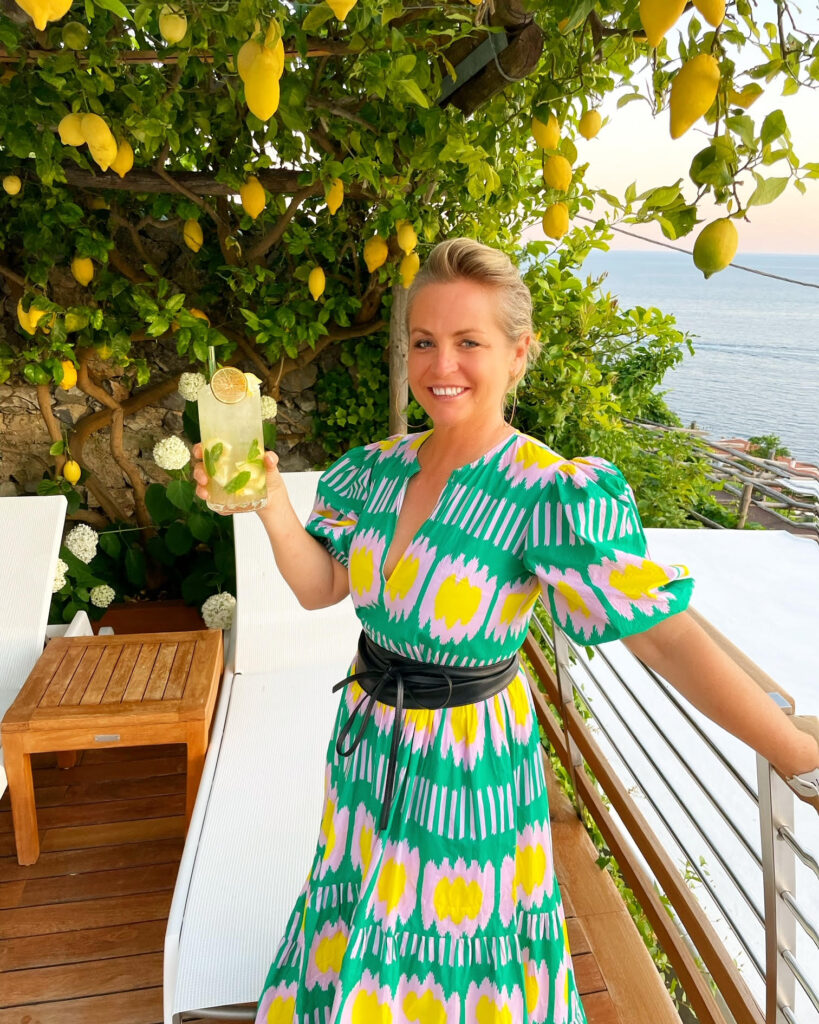
Founder and CEO of Azure Road, Lauren Mowery is a longtime wine, food, and travel writer. Mowery continues to serve on Decanter Magazine’s 12-strong US editorial team. Prior to joining Decanter, she spent five years as the travel editor at Wine Enthusiast. Mowery has earned accolades for her writing and photography, having contributed travel, drinks, food, and sustainability content to publications like Food & Wine, Forbes, Afar, The Independent, Saveur, Hemispheres, U.S. News & World Report, SCUBA Diving, Plate, Chef & Restaurant, Hotels Above Par, AAA, Fodors.com, Lonely Planet, USA Today, Men’s Journal, and Time Out, among others.
Pursuing her Master of Wine certification, she has also been a regular wine and spirits writer for Tasting Panel, Somm Journal, VinePair, Punch, and SevenFifty Daily. Mowery is a graduate of the University of Virginia and Fordham Law School, and she completed two wine harvests in South Africa.
Follow her on Instagram @AzureRoad and TikTok @AzureRoad



